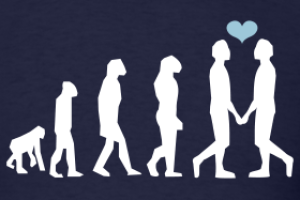London has proclaimed itself to be one of the most multi-cultural cities in the world. There are over, “300 languages, 50 non-indigenous communities with populations of 10,000 or more, with virtually every race, nation, culture and region” represented in the sprawling metropolis.[1] One of the best places to examine London’s vibrant multi-cultural tapestry is in its public transit system. Cities like LA make it so you never have to touch people if you own a car. In London, you are constantly forced to be in other people’s space and have other people in yours. You become accustomed to hearing languages that mean nothing to you, but represent one of the main ways this person communicates what’s on their heart and mind to the people they love. You are forced to smell other people, touch other people, put up with other people. You have to listen to someone’s child cry and realize you can’t do anything to stop it. You have to come face to face with their humanity and realize that, just like you, they have to ride the bus to get to where they want to go. Differences that would usually alienate you from others begin to fade as you cram yourself under someone else’s armpit on the Piccadilly line at 7 o’clock on a Friday night.
The fact that we Angelinos have such little contact with other people means that it’s a lot easier for us to shove people into mental boxes, slam the lid shut, slap a label of ‘African American’, ‘White’ or ‘illegal immigrant’ on it and toss it back up on the shelf of our understanding as ‘knowledge’. Living in London has taught me that real people, the people that actually exist outside of our own mental renderings of them, resist these boxes. Better yet, they break out of them. One’s identity is not something that can be easily defined or restricted to a few words. It’s complex. In describing myself to you I might choose to say, “I’m black.” You would think that this would be helpful. It should bring to mind certain things that would help you understand me better without me having to explain in further detail. But would it? Is this word large enough to describe me? Are the things that come to your mind the things I would use to describe myself? How have these things come to be associated in your mind with the idea of being black in the first place?
In America, the majority of blacks share a common historical and emotional experience in slavery. Yet, in Britain being black could mean a multitude of different things. It could mean you’re African, Indian, West Indian, etc etc. People belonging to these groups would differentiate themselves from each other in an instant. Skin pigmentation then starts to take on less and less significance as a sole definer of one’s identity. You then have to start asking questions about culture. What kind of food do you eat? What’s your religious background? Why do you wear clothes like that? Once you start doing this, you realize that culture isn’t as genetic as you’d thought it was. It would be a lot easier to assume that all Indians ate this or all Ukrainians like to talk like that. This isn’t how it works. Culture doesn’t get passed on from generation to generation in the same way eye color and propensity for heart disease do. One’s ‘culture’ is shaped heavily by the places one grows up in and the people one comes in contact with. In the end, people end up with multiple identities surging around inside of them, vying for prominence. Most people usually end up elevating one of these identities to the top of their list.[2] It becomes the one they put forth the strongest in their dress, mannerisms, and ways of speaking. What you choose to elevate usually ends up depending on which one allows you to feel most accepted in the society at large. At the end of the day though, these other things that define you, your other identities, still exist.
There then becomes no “essential, singular way in which to be a man, woman, teenager, American, or African.”[3] You can’t say to someone, “You’re a West Indian. That means you have to love reggae and eat rice and peas every for dinner every night, right?” How would they answer this question? As a West Indian, they might enjoy these things. But what if they don’t? Does this mean they can no longer call themselves a West Indian? Maybe what needs to happen is that the idea of what it means to be a West Indian, German or black is going to have to bend and expand to fit the diverse group of people who fall into these categories.
We should be very careful with where we place people in our minds. We see a woman in a sari and think curry chicken and Bollywood. We see a man cutting our grass and think illegal immigration and carne asada. Maybe these things do have something to do with them. Maybe they don’t. But until we’ve taken the time to hear their stories, what we should be doing is putting these boxes back on the shelf, empty. As the dust begins to gather, we might actually discover that we’ll never end up using them. It’s been easiest for man to commit the most egregious atrocities against his fellow man when he believes he can sum up a people group in one word or two. You can’t partition people as easily as the race selection section on a college application would have you think. People have never fit well into boxes and I think its safe to assume that they inherit this trait from their Creator.
[1] Leader, “Diversity not Segregation,” Guardian [UK], January 21, 2005,(http://www.guardian.co.uk/uk/2005/jan/21/britishidentity.islamandbritain).
[2] Lori Peek, “Becoming Muslim: The Development of a Religious Identity.” Sociology of Religion Vol. 66, No. 3 (Autumn, 2005): 215-242.
[3] Ali Rattansi, Racism: A Very Short Introduction, (Oxford: Oxford University Press, 2007).
———————————————————
 Justin is a BIOLA graduate and is currently a Graduate Teaching Fellow studying creative writing and literature at Loyola Marymount University in Westchester, Ca. His work deals mainly with issues of identity. He’s currently working on a collection of short stories (and possibly a novel). He’s been married to his beautiful wife, (and creative muse) Kaitlyn for just over a year and a half now.
Justin is a BIOLA graduate and is currently a Graduate Teaching Fellow studying creative writing and literature at Loyola Marymount University in Westchester, Ca. His work deals mainly with issues of identity. He’s currently working on a collection of short stories (and possibly a novel). He’s been married to his beautiful wife, (and creative muse) Kaitlyn for just over a year and a half now.





Leave a Reply
Your email is safe with us.